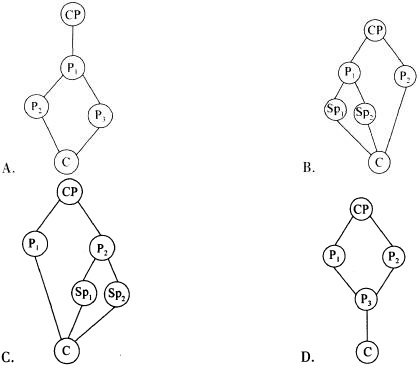湖南省长沙市长沙县教师公开招聘考试(中学英语)历年真题试卷汇编1
试卷名称:教师公开招聘考试中学英语(阅读与写作)模拟试卷19

 CP: Central Point
P: Point
Sp: Sub-point (次要点)
C: Conclusion
CP: Central Point
P: Point
Sp: Sub-point (次要点)
C: Conclusion
A.Objective.
B.Disapproving.
C.Sceptical.
D.Optimistic.
A.The exploitation is necessary for the poor people.
B.Wildernesses cannot guarantee better use of raw materials.
C.Useful services of wildernesses are not the reason for no exploitation.
D.All the characteristics concerning the exploitation should be treated equally.
A.many people value nature too much
B.exploitation of wildernesses is harmful
C.wildernesses provide humans with necessities
D.the urge to develop the ecosystem services is strong
您可能感兴趣的题目
相关试卷
湖南省长沙市长沙县教师公开招聘考试(中学英语)历年真题试卷汇编1
教师公开招聘考试(中学英语)模拟试卷51
教师公开招聘考试(中学英语)模拟试卷50
教师公开招聘考试(中学英语)模拟试卷49
教师公开招聘考试中学英语(阅读与写作)模拟试卷20
教师公开招聘考试中学英语(阅读与写作)模拟试卷19
教师公开招聘考试中学英语(阅读与写作)模拟试卷18
教师公开招聘考试中学英语(语法知识)模拟试卷17
教师公开招聘考试中学英语(阅读与写作)模拟试卷17
教师公开招聘考试中学英语(翻译)模拟试卷17
教师公开招聘考试中学英语(语法知识)模拟试卷16
教师公开招聘考试中学英语(阅读与写作)模拟试卷16
教师公开招聘考试中学英语(翻译)模拟试卷16
教师公开招聘考试中学英语(翻译)模拟试卷15
教师公开招聘考试中学英语(语法知识)模拟试卷15
教师公开招聘考试中学英语(语法知识)模拟试卷14
教师公开招聘考试中学英语(语法知识)模拟试卷13
教师公开招聘考试中学英语(英美文学)模拟试卷8
教师公开招聘考试中学英语(课程教学基础)模拟试卷8
教师公开招聘考试中学英语(课程基础)模拟试卷8